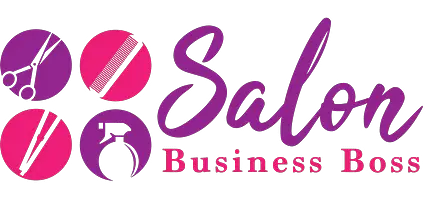Staff evaluations can be a time-consuming and intimidating task, and most employers rate them among the least enjoyable aspects of their job. Regular evaluations, however, can result in a net positive for your business, creating a better working environment for you, your employees, and your clients.
The best way to evaluate your salon staff is to set a clear date, prepare and review all staff records in advance, keep a job responsibility list and score, specify feedback relating to your salon’s culture, avoid confrontation, keep cool tempers, learn to listen, never discuss raises or money, be sure to address problem areas, be specific with both praise and recommendations, reevaluate sooner for special circumstances, always be sensitive, know when to fire, always find the compliments, and to document everything.
These 15 key areas will evaluate nearly every aspect of your staff’s performance, help set goals, and grow both your employees and your salon. Knowing just why evaluations are so crucial to a better salon, which areas to focus your evaluations on, and how often you should hold staff evaluations are other topics we cover here that will better prepare you for the best evaluations you can have in your salon today.
Why Conduct Employee Reviews?
If you find reviewing your employees daunting, you may be asking yourself why it needs to be done at all. You may think that doing away with employee evaluations altogether may provide a better workplace, but studies have found that 69% of employees say they would work harder if they felt that their efforts were better recognized, and staff evaluations are a perfect way to do just that.
Most think of staff evaluations as a purely negative exercise, but the best employers use their evaluations not only to work on any needed problems but to praise their employees for things that they do well. In this way, evaluations can lead to a more motivated and productive staff, which is exactly what you want in your salon.
Salon staff evaluations can also help you to identify:
-
- Your most valuable employees
- Underperforming employees
- Any problem areas
- Any teamwork issues
- Lack of sales
- Lack of attendance
- Salon culture issues
By identifying these areas, you can better solve any issues that may be causing your staff to perform below expectations, head off any problems before they become explosions, and discover what methods you can use to praise and motivate your staff.
What Areas Should I Evaluate?
While what you base evaluations on is strictly up to you and the culture of your salon, a few key areas of salon staff evaluations are:
- Professionalism – You want your employees to always be professional, especially when dealing with members of the public daily.
- Leadership – When problems arise, some of your employees will step up and take a leadership position, and you’ll want to praise those that do.
- Teamwork – Your staff will need to work together to make your salon run in the best and most effective way that it can.
- Skill Base – Each of your employees will have a different skill level, and identifying that will let you know who you can trust with certain, or more, tasks.
- Customer Service – You’ll want to know how each of your employees handles their customers, and what level of customer service each provides.
- Financial Performance – This deals with how much your employees make, and can reveal ways that may improve or decrease the amount an employee can make.
- Sales Performance – Part of a salon employee’s job is to sell products, so you’ll want to review who is better at it, and why, to increase sales amongst all your employees.
- Client Retention – Retaining a client is one of the most important aspects of a salon, and this can identify ways to improve client retention.
- Attendance – you want your employees to be at your salon more than they are not.
- Time Management – Identifying time management issues can prevent problems from increasing or show you ways that staff can better use their time.
- Conflict Resolution – Conflict occurs at any job, and evaluating this aspect will allow you to determine who is better at resolving conflict, and ways to improve those that are worse at it.
How Often Should I Perform Evaluations?
The answer to this is solely at your discretion. If you feel that evaluations should occur more or less frequently, you certainly can institute that. On average, employee reviews usually occur once a year. Though research has shown that employees prefer more regular feedback, which results in improved performance.
For this reason, some salon owners prefer to conduct reviews once per quarter. This time frame gives a good amount of time to see improvement or changes, that your employees make. It also gives your staff a set date on which to achieve goals. Also, quarterly performance goals have been shown to increase employee engagement by 30 times. So you can see why some prefer it!
15 Keys to the Best Staff Evaluations
The following 15 keys will help you to better evaluate your staff, and to guide them to improved performance, and a better overall workplace.
- Set a Clear Date – Whether you choose to evaluate once a quarter or once a year, make sure that your employees are clear on the time, date, and place of their evaluation. Setting a date gives your employees time to prepare and a known date in which to try and achieve their goals.
- Prepare and Review All Staff Records in Advance – An employee evaluation will run more smoothly if you know the employee’s record beforehand, as opposed to trying to go over it during the evaluation itself. Just as employee’s should be prepared for the evaluation, so should you be.
- Job Responsibility List and Score – A way to document your staff’s performance is to have a written list of job responsibilities, such as those listed above in the What Areas Should I Evaluate section, or any others you choose to evaluate your employees for. A simple way to score them is to give each area a number from 1-5, with 1 being the least desirable and 5 being the most. This way you have documented scores with which to evaluate each area and to discuss with your employees.
- Specify Feedback Relating to Your Salon’s Culture – Each salon intends to cultivate a particular culture, and your employees contribute to it even more than you do. Areas such as leadership, communication, enthusiasm, and conflict-resolution can all be included in the culture that you are trying to create in your salon. It’s important that your employees know what culture you are trying to build and their role in it, and making it part of your evaluations is one way to do just that.
- Avoid Confrontation – An employee evaluation should be a one-on-one forum for you and your employee to openly discuss performance and improvement. Though an evaluation may get testy under some circumstances, it’s important to remember that you are attempting to find solutions, not cause more problems.
- Keep Cool Tempers – If an evaluation does become confrontational, take a 10-20 minute break to let emotions cool down. Understandably, you or your employee may become emotional, but emotions make a poor basis for decisions. Letting things cool down before continuing with the evaluation can lead to better solutions that benefit both your salon and your employee.
- Learn to Listen – While you may be tempted to let an evaluation become one-sided, it’s important that your employees feel like they are being heard. Give them time to address any concerns that you may state or that they might bring to the meeting. Making evaluations about both you and your employees is a perfect way to address any issues they may have before things take a turn for the worse.
- Never Discuss Raises or Money – Performance evaluations and compensation reviews should be two different things. Keep all talk of money out of performance evaluations to maintain the focus of the meeting on performance and improvement. Make it well known to your employees beforehand that evaluations are not compensation reviews, and that those will happen separately. That way, you can focus the evaluations on making your salon a better working environment without getting lost in money issues.
- Be Sure to Address Problem Areas – Now is the time to be open and frank about any problem areas a specific employee may have. If possible, have statistical analysis to back up your issues, such as employee retention numbers, retail sales, etc. This will provide your employee a clear guide on their performance and the ability to set goals to do better in these areas.
Be sure to ask your employee what areas they think they are doing better or worse in, and allow them to explain the reasons why they think that is. In this way, you two may be able to find a solution that benefits you both, and you can provide help to employees that may need it. In this way, the atmosphere of your salon will be more of a team and less of a boss/employee divide.
- Be Specific With Both Praise and Recommendations – Always be clear about what your employee is doing well, and areas in which they may be struggling. Offer practical solutions, and listen to their ideas, so you can find the best way to help them improve. Never tell an employee that they’re weak in a particular area without also giving them specific recommendations on how to improve in that area. Giving your employees tangible ways to improve will always increase performance more than just telling them that you want them to improve.
- Reevaluate Sooner for Special Circumstances – At times, a follow-up evaluation may be necessary to track improvements in certain areas. Let your employee know that you will be doing this so they know what date they need to improve by. These follow-up meetings can be in two weeks, four weeks, or a couple of months. Anytime you want to see a marked improvement in a short time, you should make these follow-up appointments, letting your employee know.
- Always Be Sensitive – The larger your salon, the less you may know about any daily struggles your employees may be having outside of work that may be impacting their performance. Employees can also have a lot of their identity wrapped up in their job, so hearing criticism can be tough. Remember that an employee can’t grow and improve if they don’t know what the problem is. Your job is to guide them to become better employees, which is always easier when you are sensitive to an employee’s problems and needs.
- Know When to Fire – Sometimes, things just won’t work out. If for personal reasons, or an inability to fit in with your ideal salon culture, some people just won’t be a good fit for your salon. It’s better to let someone like that go than to let them flounder on. Always give people a chance to improve, but if they can’t or won’t, it would be far better for all parties to replace them with someone who does.
- Always Find the Compliments – There are always things that you can compliment an employee on, even if you have to search for them. Let your compliments be just as free as any criticisms during the evaluation process, so your employees know that their achievements aren’t being overlooked. Even in areas that they may be struggling in, try to find the positives as well as the negatives.
In this way, these evaluations will be a stepping stone to improvement, not dread for your employees. If both of you come into it with this in mind, the evaluations will go much smoother and provide results that improve your salon and employee performance.
- Document Everything – Perhaps one of the most important aspects of an employee evaluation, be sure to document every interaction in these meetings. Don’t rely solely on your memory, or the memory of your employee, as memories can be subjective and faulty. Document any issues or problem areas, as well as the solutions you both have reached about them.
You can even give each employee a printout of their evaluation, the agreed-upon goals, requirements, or sales targets, so each of you have a physical document of what is expected. Then, during your next evaluation, you can refer back to these in any areas of recommendations or goals to specify the level of improvement each employee has made since that evaluation. Having past evaluations set in stone can make any future ones that much easier.
Check out how to find the best employees HERE.
Related Questions

Where should I conduct my staff evaluations if I don’t have an office?
Staff evaluations can be held anywhere you like. Certain salons, especially newer ones, may not have an office area in which to conduct evaluations. In such cases, evaluations can be held at restaurants, cafes, diners, even at the home of the employer or employee. Also, evaluations can be held in the salon before or after hours, if both parties agree to it. Any place can be a good place for staff evaluations as long as the right attitude is present.
What if I don’t have time for staff evaluations?
You should always make the time for employee evaluations, even if it must be done during business hours. An hour a day once a year for evaluating an employee will be far more beneficial to the overall environment of your salon than not holding an evaluation will. If you can’t find time to hold evaluations, the message to your staff is that their concerns and achievements are not important to you, which will, in all likelihood, cause a decrease in staff performance that will negatively affect your salon. Using the keys we’ve set here in an evaluation should make your salon more profitable if you just take the time to implement them into staff evaluations.
Looking to start your own Salon? Get the documents you need to get organized and funded here.
Please note: This blog post is for educational purposes only and does not constitute legal advice. Please consult a legal expert to address your specific needs.

About the author. Entrepreneur and Salon Business Fan.
Hi! I am Shawn and I am a happy individual who happens to be an entrepreneur. I have owned several types of businesses in my life from a coffee shop to an import and export business to an online review business plus a few more and now I create online salon business resources for those interested in starting new ventures. It’s demanding work but I love it. I do it for those passionate about their business and their goals. That’s why when I meet a salon business owner, I see myself. I know how hard the struggle is to retain clients, find good employees and keep the business growing all while trying to stay competitive.
That’s why I created Salon Business Boss: I want to help salon business owners like you build a thriving business that brings you endless joy and supports your ideal lifestyle.

